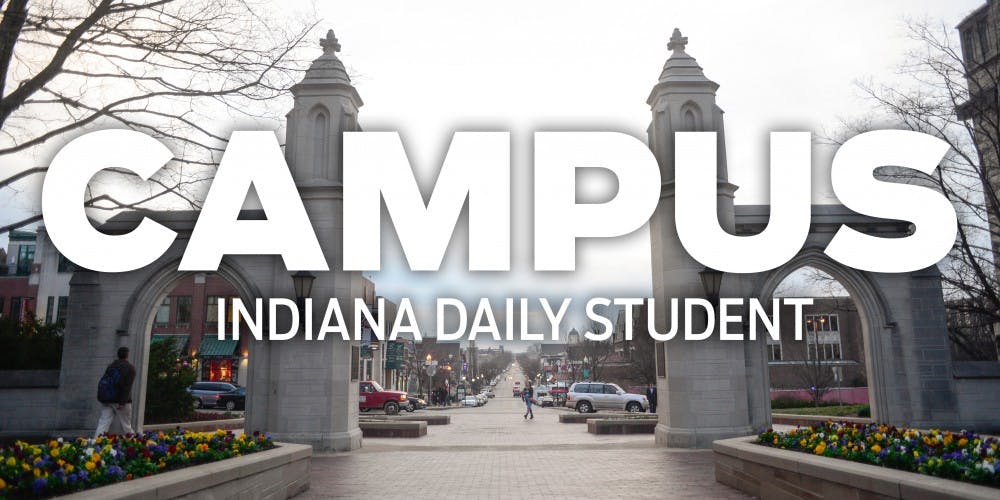Tom Sweeney, incoming Culture of Care president and IU sophomore, said he hopes for a day where there will be no more alcohol-related deaths on college campuses.
While getting to that point will not be easy, he said the first steps are to encourage active bystanders who will step up in dangerous situations and to spread awareness for the Lifeline Law.
“It’s a tough road, but that’s the dream,” he said. “We don’t want to see any more deaths because of alcohol, so we have to look out for one another and call for help as soon as we can.”
The Lifeline Law gives students immunity for public intoxication or minor possession of alcohol if they call for help for a person in an alcohol-related medical emergency and cooperate with police officers when they arrive on scene.
The law, passed in 2012, was a response to alcohol-related deaths among college-aged students, often because students were afraid of getting in trouble for underage drinking if they called for help.
In Indiana alone, more than 24 people under the age of 21 died from alcohol poisoning in the last 10 years, according to the National Institute on Alcohol Abuse and Alcoholism.
One of them was former IU freshman Rachael Fiege, who died in 2013 after falling down the stairs at her first college party.
Sweeney said Culture of Care is working with the Indiana Youth Services Association, Indiana’s Text-to-911 Services and state leaders, including Indiana state treasurer Kelly Mitchell, to spread awareness for the law at college campuses and to prevent any more alcohol-related deaths at IU.
The social media campaign is part of the second annual IYSA Make Good Decisions program and will run until November. The Make Good Decisions program will shift its attention to high schools in Indiana in the spring.
Catherine Seat, communications director for the Indiana Treasury of State, said the campaign will connect with students through ads on Facebook, Instagram and Snapchat.
“We have to meet students where they are, and they’re already on these social media platforms,” Seat said. “We saw it as the most direct way to reach college students.”
Seat said the campaign has already made 4,227,199 impressions, with two million on Facebook and one million on Snapchat.
In each ad, an image depicts young people drinking or partying. In one, a girl is supporting a friend who has passed out on her shoulder. In another, a crowd of people dance with red solo cups bobbing above their heads.
Underneath each image are the words, “TXT/CALL 911. STAY. COOPERATE.”
Miko Siewenie, Culture of Care president and IU senior, said even students who know about the Lifeline Law do not realize they have to stay and cooperate with police officers in order to receive immunity for alcohol-related crimes. Instead, many think they can call for help and leave.
“We don’t want people to call and then leave this person who’s in danger alone because they’re worried about repercussions,” she said.
While she wants people to take advantage of the law, Siewenie said it is important for students to know that immunity from law enforcement during emergencies does not mean being caught with alcohol underage will not affect scholarship, academic standing or penalties from IU.
“We don’t want that to keep people from calling, but sometimes it’s the reality,” Siewenie said. “So it’s important to know how things like this will affect your scholarships and stuff before it happens.”
Sweeney said on many invitations to parties on Facebook, he has seen the words “Culture of Care” written in the description to remind students to look out for one another and call for help if needed.
But he said there is still a divide on campus in who knows about the Lifeline Law and who does not.
“It does seem pretty 50-50,” he said. “Some people are aware. Some aren’t.”
Siewenie said she hopes students will put someone’s life ahead of legal repercussions, but she said it is difficult to think about that in the moment when you are scared and your friends may be telling you not to call.
“They may not realize that there’s a real problem until it’s too late,” she said. “They may be facing backlash from friends who are scared of repercussions. They may just be terrified of what may happen in that moment.”
For students who are reluctant to stand up because their friends may get upset, Seat recommended texting 911.
“No one has to hear or see you do it,” she said. “You can send off a text and save a person’s life, and your friends don’t even need to know.”
In 2016 alone, seven 911 calls were attributed to the Lifeline Law, according to the IYSA Make Good Decisions Annual Report.
This brings the number of 911 calls attributed to the Lifeline Law up to 33 between 2012 and 2016. Seat said that number has now passed 40.
“Even one life saved is enough for these efforts to be worthwhile,” she said. “Now we’re getting upwards of 40, and with every life we save, it’s all the more reason to keep going.”




